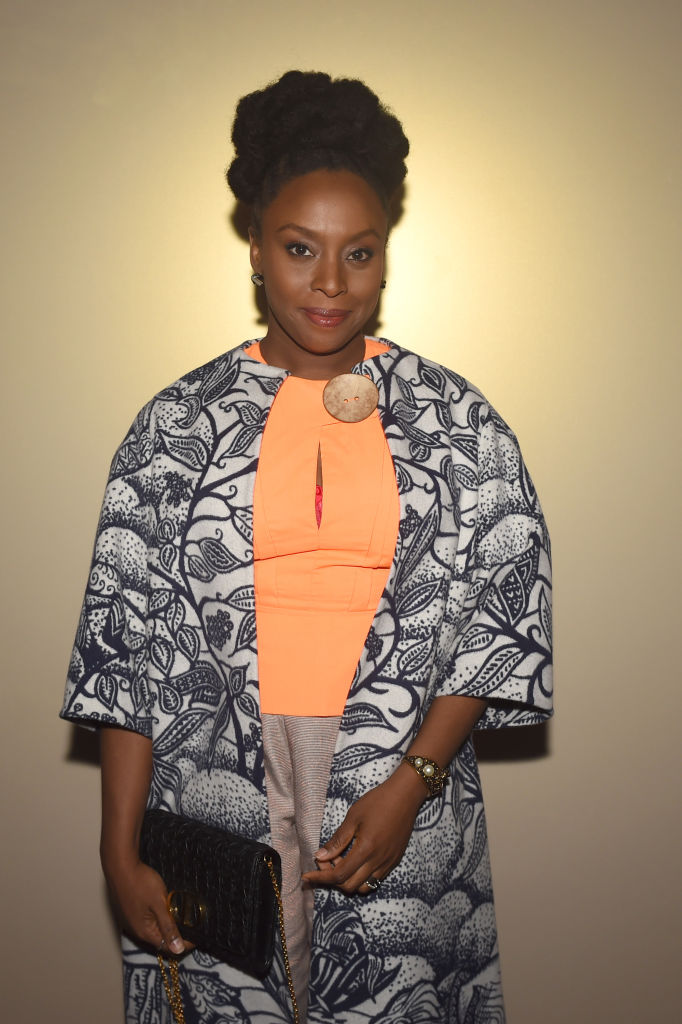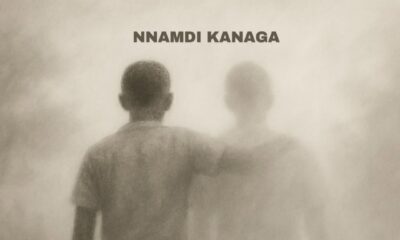Scoop
Read Chimamanda Ngozi Adichie’s Essay about Suffering a Concussion during the Coronavirus Pandemic

PARIS, FRANCE – JANUARY 20: Chimamanda Ngozi Adichie attends the aftershow dinner for the Dior Haute Couture Spring/Summer 2020 show as part of Paris Fashion Week on January 20, 2020 in Paris, France. (Photo by Anthony Ghnassia/Getty Images for Dior)
Chimamanda Ngozi Adichie was playing with her daughter when she fell and hit her head on a hardwood floor. The fall caused her a confusing and painful injury, leading to a concussion, and memory loss.
“My daughter and I were playing tag or a kind of tag. Before that, we traced the letter P and we danced to James Brown’s “I feel good,” a song she selected from the iPod”, she writes in the Washington Post. “I turned away from the kitchen to make the chase longer and something happened. I slipped or I tripped or my destiny thinned and I fell and hit my head on the hardwood floor”.
However, Chimamanda says she couldn’t remember anything after the concussion. Thankfully, she taught her daughter to place a call to through her husband, a doctor in one of the hospitals in Maryland.
She shared that:
I do not remember any of this. I found myself upstairs, sitting on my bed, an ice pack pressed to my face, when my husband hurried in, having driven back from work. Later I will imagine him, after my daughter’s call, yanking off his protective equipment, the puffy white suit, the see-through shield over his face; I had fretted when it took a while for his clinic to get the protective wear, and when finally it came I told him he looked like an ungainly robot in it.
I know I fell, but it is a half-lidded knowledge, and I cannot claw through my memory’s haze to reach any clear detail. I feel a profound helplessness, a sense of something slipping away. How did I get here? I am in my husband’s car, driving to the University of Maryland emergency room in Baltimore, and I do not know what happened to me.
…I wonder what else I do not remember and, more terrifying, what else I will be unable to remember. My brain is now a stranger. My understanding of myself begins to tilt sideways.
Getting to the hospital, waiting at the almost empty ER, the writer shared her thoughts on how the pandemic “has made everything else seem small and dismissible”. Talking about the apathy of the nurses, she says:
Maybe the nurses wake up thinking of all the health-care workers who took every precaution but still died of this new scourge. Maybe their apathy is a shield, a way of coping.
Speaking on her unsatisfactory experience in the hospital, the author wrote:
On the drive home, as I fold and refold the generic discharge paper, I feel deflated, unsatisfied but almost apologetically so. I wanted a proper account of my fall, to be told of my brain, and of the scan, and of what to expect in the coming days. But this might be an unreasonable expectation in a time of coronavirus. Perhaps this is the new norm, this hurried, harried care, yet another loss to be counted in the pandemic’s final toll.
…Coronavirus made me, for the first time in my life, interested in taking vitamins for immune health, and now I find myself googling supplements for brain health. I know they might all really be snake oil but all the same I order some to try. An act of hope, that my brain will very soon be right again.
Read more about Chimamanda on Washington Post.





















